babyratu: threesomes and the female gaze are so back
(spoiler free convos about sexy women) bob dylan, babygirl, nosferatu in cinemas now!
PRELUDE
Happy new year! I hope everyone had a wonderful and restful holiday.
BIG NEWS: I’m finally graduated! No more purple school (NYU)! I’m free from the shackles of academia!
Unfortunately for my former overachiever 15 year old self, I find myself deeply unemployed and begging the same purple school for more money please (we’re in the final rounds of a school grant, I don’t know why that came out so pessimistic). Additionally, I will be traveling to Korea this week to help my mom move and clear out my grandmother’s house. It’s a pretty tumultuous time in my life right now but despite it all, everything feels pretty calm. My boyfriend’s sister did roast me the other day saying “some of us actually have to do things and not just go to pilates every day.” Touché, Alma…
Luckily, we have cinema to distract us from the realities of life! I finally had some time to catch up on recent releases so today I’ll be writing a spoiler-free conversations around A Complete Unknown, Babygirl, and Nosferatu! Overall, I enjoyed all of these films on an entertainment level, and wanted to discuss and delve into some of the themes and politics behind(P.S. I’m hoping that readers will know the generally premise and characters of these films) (P.S.S. mentions of the film Past Lives as well)
TABLE CHAT
A Complete Unknown exceeded my expectations. I loved the music. A warm recording studio feels like a distinct from a past life for me, a comfort from when my dad used to be a freelance sound engineer. I loved the music. The Bob Dylan accent wasn’t even that noticeable after a couple minutes into the film.
The essential question and conflict seemed it one that really connected with the filmmaker’s POV of the world. How do I change in a changing world? Faced with new technology and even AI now, how do I integrate? How do I adapt? Who the fuck am I anymore? How do I play by a studio’s rules?
“DON’T DATE MUSICIANS” - MY DAD, A SOUND ENGINEER AND HIS LONGTIME DREAM JOB: MUSICIAN 🎸
My only drawback from the film was that I am just so tired of the roles of women who just orbit around a man’s life. That’s not to say that women who center men in their lives are less than or don’t even exist (unfortunately we have to coexist with men). The following article is the only criticism around this factor that I could find online:
“Their relationship was a complex, decade-spanning back-and-forth that simply couldn’t be committed to a film that captures just a few years. That Dylan’s misogyny played a role in its demise was only hinted at in the film, but at least it’s there. Throughout, he repeatedly disrespects and belittles Baez, cheats and lies to his partner, Sylvie (Elle Fanning), and largely treats women as if they’re there to be had and little else. Still, in the end, his shortcomings don’t matter much. As the logline reads, it’s he who breaks new ground sonically (and socially) that “reverberates worldwide.” This is Dylan’s story meaning liberties were taken, crucial details were left out, and Baez—regardless of the gusto Barbaro wields in breathing life into the person on the page—becomes a peripheral character.
A Complete Unknown could land among certain audiences (any woman who has ever dated a musician) like a cautionary tale against unkempt, spindly artists who communicate only in song. To others, it might be a celebration of all the people—women and men—who lent Dylan their hands, hearts, and homes so he could become the legend he is today. This includes Pete Seeger, Johnny Cash, and the number of women who—for their own reasons—loved him. But to me, I only walked away wondering when Hollywood would finally find the funding for biopics that chart the myriad ways women in music have broken new ground.”
– “Can We Have More Female Musician Biopics, Please?” By Audra Heinrichs, on Jezebel
Joan is the bitch to Dylan’s asshole-ry.
I don’t think their characters were bad or any less interesting but it felt too obvious that these two women (Joan and Sylvie) were infatuated with this guy (which like fine. sure. fair. whatever.) but what do I know of their ambitions? Their dreams? Sylvie wants to paint… like okay? And what? And despite seen as her fame far preceded his, Joan represents a female complacency in a male dominated world, an acceptance of the executive big corporation role in music. She goes onto write more songs about Dylan as stated in the epilogue. There’s an implied wink, wink, she never gets as big as he does that irks me in a way I can’t quite explain. That’s just what she spends the whole entire movie doing. (I pray this kind of love never finds me.)
Men like Dylan are cheaters. We accept that. It comes with the price of superstardom and being a rock and roll hero. It’s a given, it’s almost even negligible. Dylan is grappling with what he wants (hint: it’s neither woman). It’s ultimately a story about his dreams, his identity, his assertion on the world. If we can accept this too, I found this film very fun and an enlightening examination of a crossroad moment in an artist’s life.
THE CHRISTMAS TREE IS A METAPHOR 🎄
Babygirl speaks to what the true female fantasy is.
I found myself super intrigued and drawn into what this movie is ultimately about and what it represents in our society today.
My main criticism of the film and what I hear some of my friends comment on is how the film never really takes it there. It never really goes so far that we are actually afraid that something will happen to her. There’s no real threat or danger that she will lose her job – I saw someone on Letterboxd even ask why didn’t they just have a threesome with Antonio Banderas. (Is that a spoiler if that didn’t happen?)
Babygirl breaks the traditional male fantasy of a threesome and love triangle.
My boyfriend jokingly pointed out how the Christmas tree in the background of the film is a metaphor for a love triangle. It’s a giant triangle… get it?
Strangely, this film drew a lot of parallels to Past Lives for me. Both films felt like they are fully steeped in what the female protagonist wants; her male partners and all parties involved ultimately allow themselves to explore and experience her desires and emotions fully (no slamming doors or punching walls in an effort to repress, repress, repress). That is the female fantasy, the female gaze. Her agency is center. The men in Babygirl are both very absentminded, blasé, don’t really care what is generally even happening.
The men in Past Lives might be seething underneath but are loyal to Nora as well. For once, we see a different dynamic on film where men quietly simmer in the background, hoping they are the ones picked and get to experience that anxiety. A particular kind of relationship anguish and suffering has been tied to female roles only but it really is part of a complete human experience. (Speaking of quietly simmering, Toshi Seeger’s role in A Complete Unknown… I mean it’s 2024, are we really gonna write in a scene were an Asian woman’s big moment is she defiantly Kubrick glares at her husband down without uttering a single world… I mean come on… give her at least some dialogue man…)
It’s only when the female protagonist can say what she wants boldly that the film can draw its final conclusions; it’s this journey that we are ultimately following and tracking.
MAKE VAMPIRES SEXY!!! 🧛🏼
Dracula is a tale of modernity and tradition, as well as deep sexual repressed desires. It’s also about threesomes and wild perverse sex just as much as Shakespeare is about cross-dressing and dick jokes.
Nosferatu: it was a really exciting film that I wanted to jump on the hype head first. The film makes some key changes, however, that I think completely change the meaning and message of its original source material.
While the original novel Dracula (which the film Nosferatu infamously ripped off completely) centers around Jonathan (Thomas in the film) and his fiancée Mina (Ellen in the film) trying to save their friend Lucy (Anna in the film) and all of good ol’ British society from Dracula through means of technology and discussions around an embrace of “unladylike” and “unbecoming” behaviors (i.e. threesomes with sexy vampire ladies, having multiple suiters who Lucy wishes to court all of them at the same time, being a modern woman like Mina who is able to use modern-day technology to try and defeat Dracula), in Nosferatu the monster is a representation of evil and desire. Rather than a conflict between old world and new world, tradition versus modernity, the film seeks out and charts its own course. Nosferatu adds bubonic plagues and creepy cults with no real rhyme or reason for me. By trying to modernize this old tale, it actually becomes more conservative and traditional (or a cliche idea of what we THINK Victorian era people were like, i.e. repressed, shamed, etc), that ultimately makes it harder to call this a modern-day retelling of Dracula or Nosferatu. Having to adapt all the different plot points from the original novel into something that makes sense visually without falling into plot holes that audiences can point is no easy feat however.
Funnily enough, Nosferatu is also technically a love triangle between Ellen, Thomas, and Count Orlok!
It’s a really interesting idea to have a character like Ellen who is drawn to Count Orlok/Nosferatu, some deep desire that is so ugly, hideous (can you tell I don’t like that Bill Skarsgård is never allowed to be sexy or normal looking in just one film) but my friends and I had a really hard time trying to decipher what the film was trying to say about… anything? I have a hard time even really getting into the specific details of the film and attempting to break down what this film was trying to say. I’ve heard even people say on Tik Tok (RIP) that the film is an allegory around sexual assault of young women, but I think that was just such a stretch and I don’t think the original intention of the film. I’ll just end with saying that I’m not sure who we’re supposed to root for in this film. Are we supposed to want Ellen to embrace her sick twisted connection to and lust for Count Orlock? Or is this still the tragic sacrifice it’s made out to be to protect everyone? Are we supposed to root for those who ultimately suppress her and attempt to “protect” her?
A lot of complex thoughts on films today and surprising themes and symbolism that is emerging in cinema today (the people are horny). I hope these thoughts don’t lead me to being blacklisted in Hollywood one day (please I love cinema! it comes from a place of love!)
Stay warm and healthy xx
![[banchan]](https://substackcdn.com/image/fetch/$s_!bzBv!,w_80,h_80,c_fill,f_auto,q_auto:good,fl_progressive:steep,g_auto/https%3A%2F%2Fsubstack-post-media.s3.amazonaws.com%2Fpublic%2Fimages%2F4020a6b2-7d75-439c-8957-0777f2e5fe65_1200x1200.png)

![[banchan]](https://substackcdn.com/image/fetch/$s_!bzBv!,w_36,h_36,c_fill,f_auto,q_auto:good,fl_progressive:steep,g_auto/https%3A%2F%2Fsubstack-post-media.s3.amazonaws.com%2Fpublic%2Fimages%2F4020a6b2-7d75-439c-8957-0777f2e5fe65_1200x1200.png)

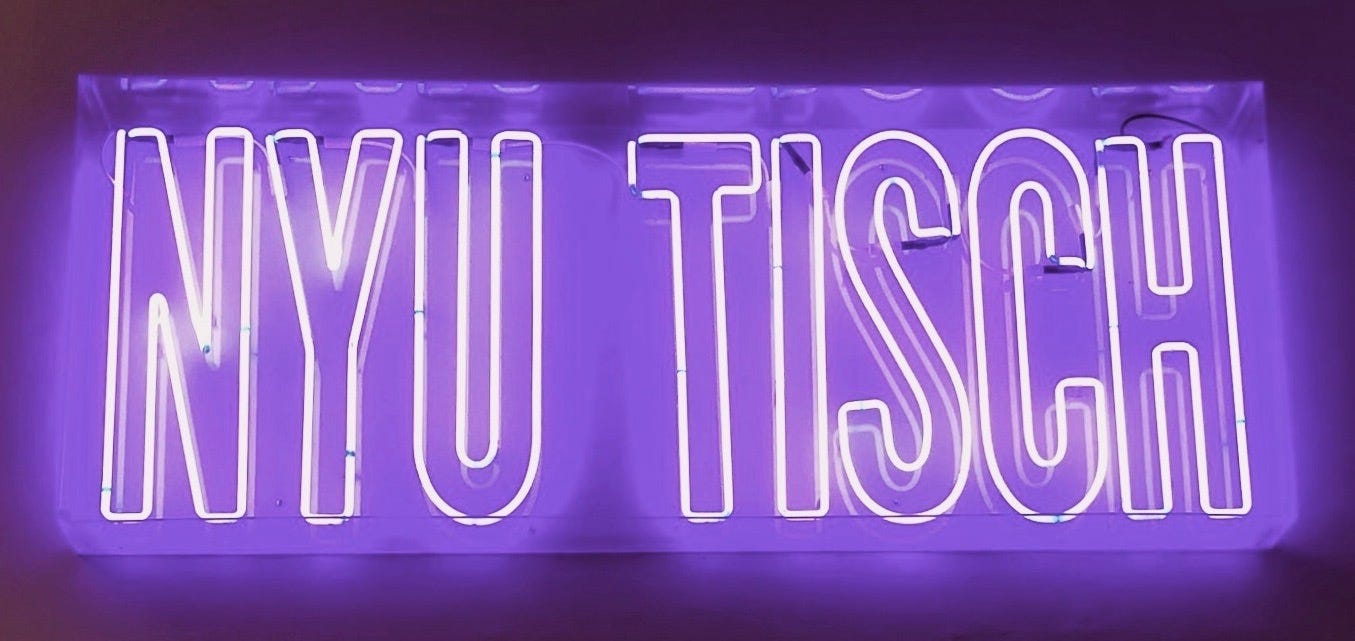

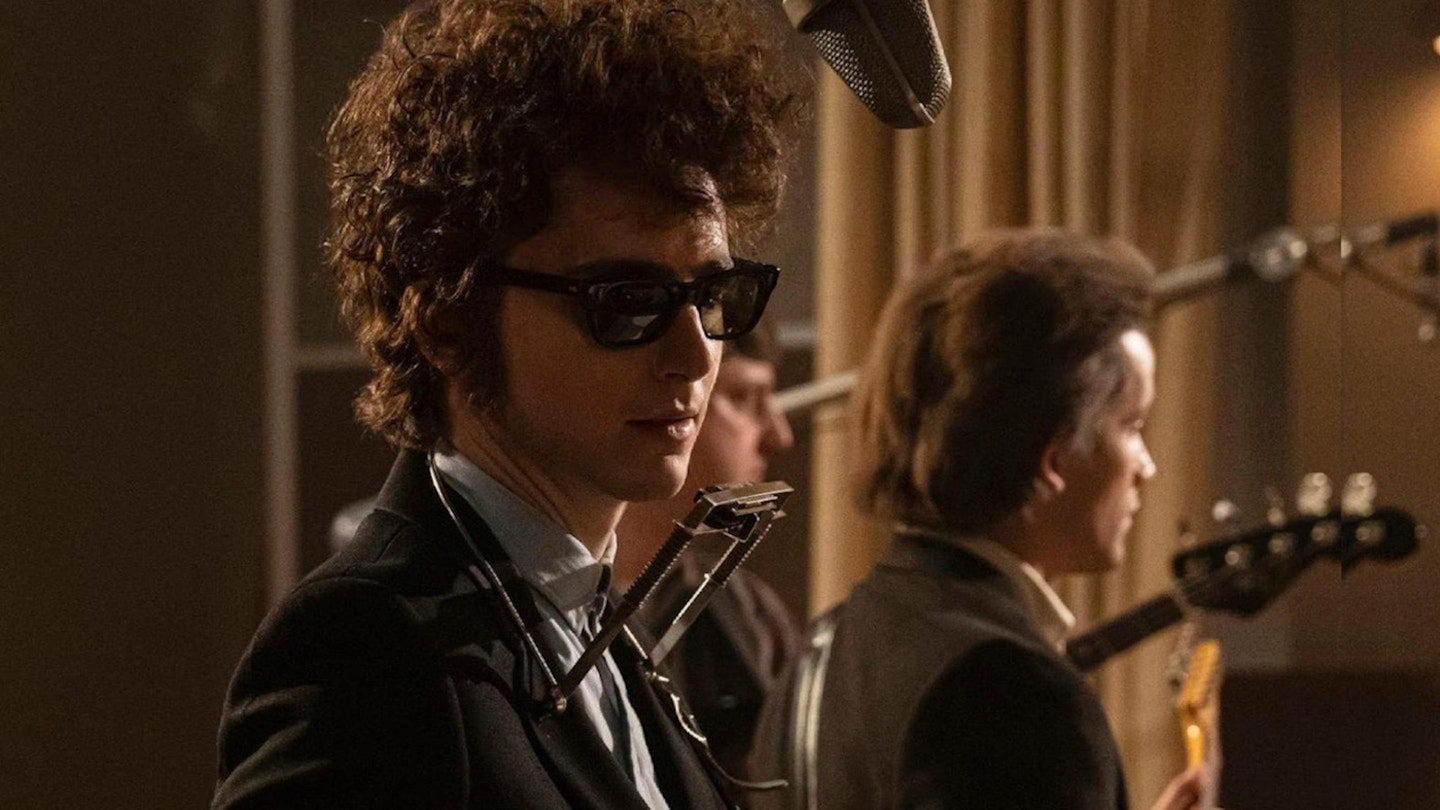
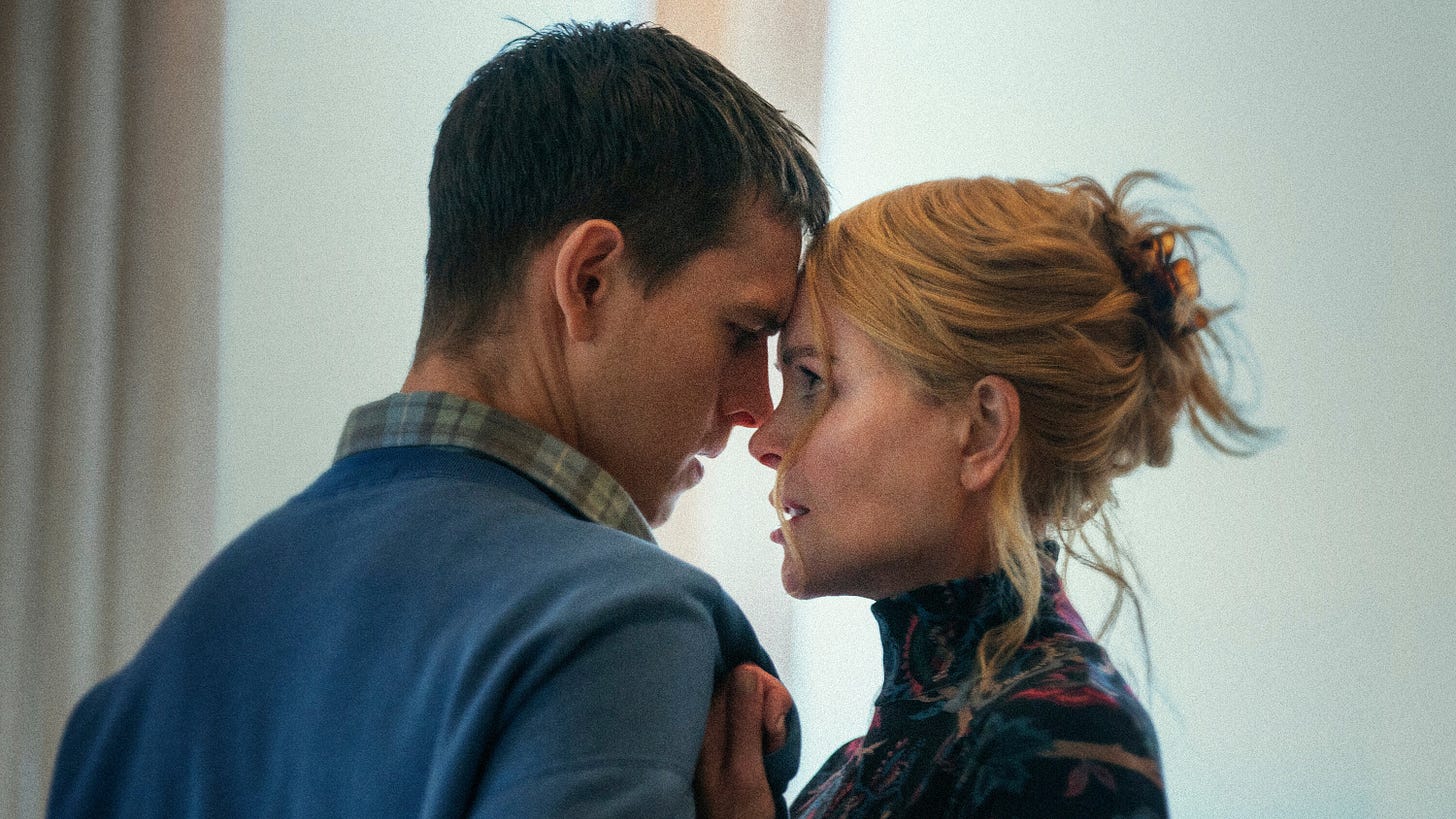
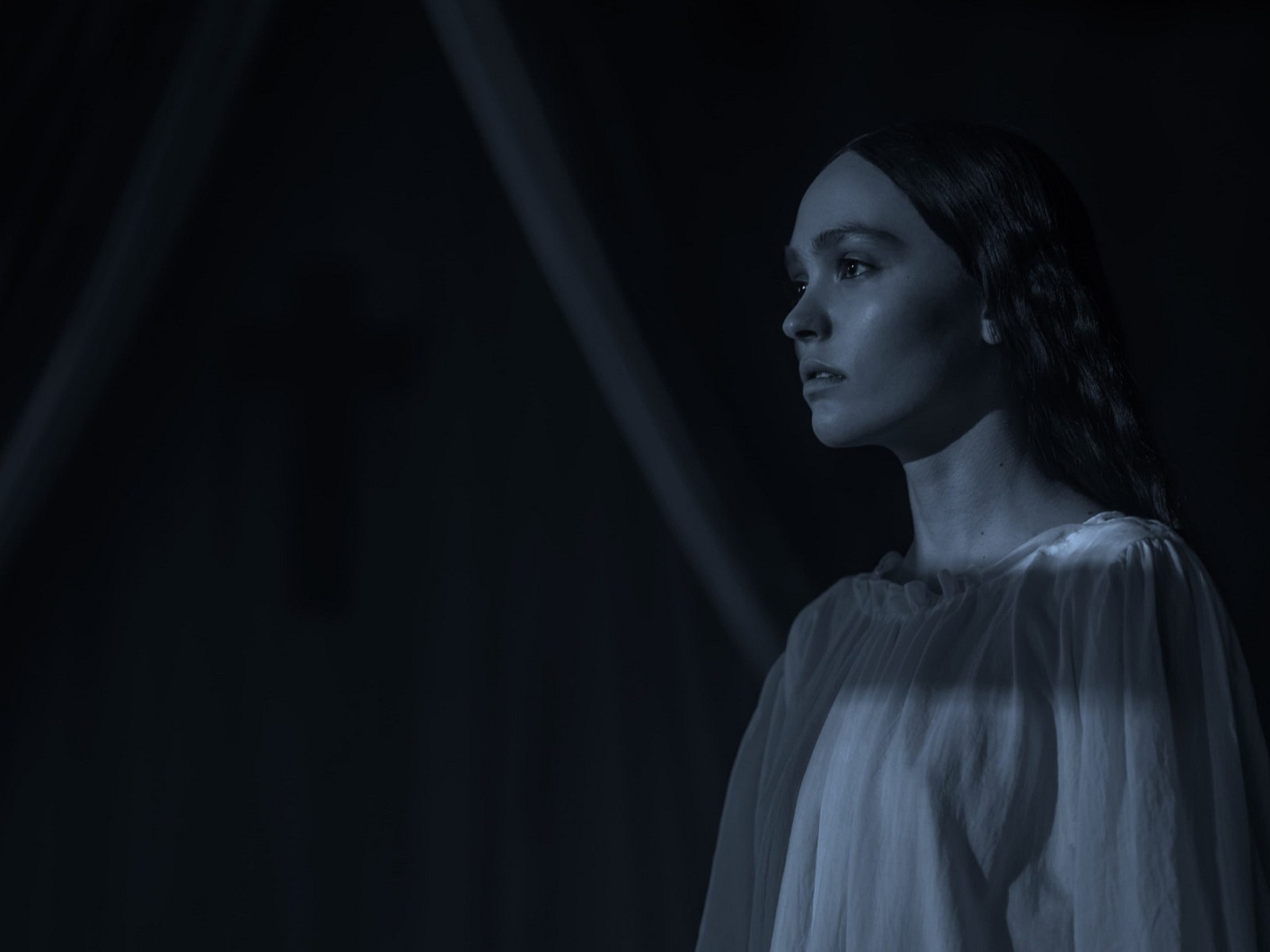
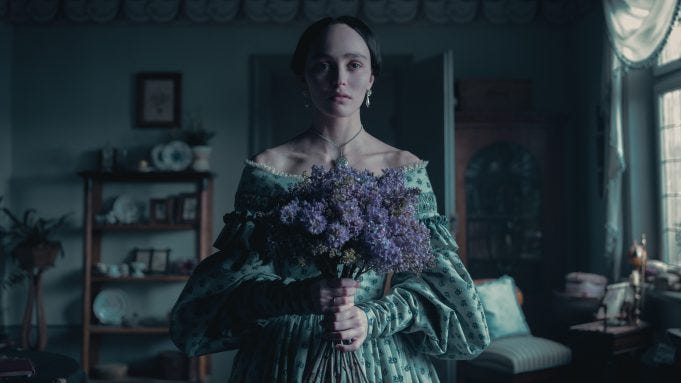
What I got out of Nosferatu is that a woman is horny and has needs that society and her husband won't give her, so she sends a call to a gross weirdo who brings the plague to find her. It almost felt like the movie needed to punish the lead for being horny.